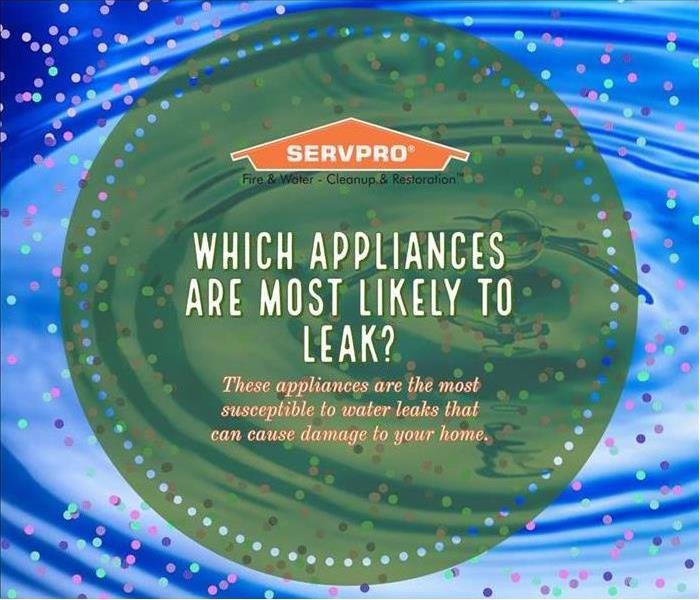Which Appliances are Most Likely to Leak
8/26/2022 (Permalink)
Although any appliance that uses water is susceptible to a leak, here are the ones you need to be most aware of to prevent a wet disaster in our home.
Hot Water Heater
Most water heaters will last 10-15 years, but leaks can happen at any time. The seals going into the water heater can break down quickly because of the constant pressure from heating and cooling. With hot water heaters also being tucked away into closets, leaks can go unnoticed until they become a major problem.
Dishwasher
A dishwasher's water lines are typically make from a soft plastic that can easily fail, so checking for leaks under the dishwasher as part of your annual home maintenance is wise. If you notice dishes not being clean, strange noises, or your dishwasher just not working right, inspect for a leak.
Washing Machine
Washing machine hoses are some of the most common sources or leaks. Because they are notorious for this, it is recommended that they are inspected at least once a month by homeowners so you can be sure no issues have arisen. In addition to these regular checks, they should be fully replaced every five years in order to prevent hidden deterioration.
Air Conditioner
The drain in your HVAC unit is designed to keep condensation from pooling in and around the unit. But if this drain malfunctions, water damage can quickly be caused. Reference you manufacturer's manual to determine how often your unit should be inspected and serviced. Having a professional technician evaluate your machine is the best defense against HVAC-created water damage.
While not as likely to create as big of a mess, window air conditioners can also create leaks from condensation buildup, pump failures, and a number of parts issues. Most of the time these leaks can be cleaned up with towels and the unit repaired, but improper use over a period of time can create a leak and cause a mold problem as well.




 24/7 Emergency Service
24/7 Emergency Service
